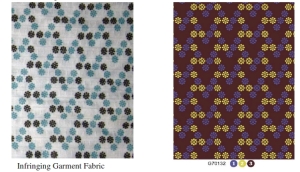Our weekly SoCal IP Institute meeting on Monday, June 3, 2013 will be a discussion of one district court copyright sanctions case and a Federal Circuit decision regarding cross appeals of invalidity. Brief synopses of the cases appear below.
Ingenuity 13 LLC v. John Doe, Case No. 2:12-cv-8333-ODW (JCx) (C.D. Cal. May 5, 2013) (available here).
This case has been quite popular in the legal press. The outcome, thus far, is that the lawyers representing the plaintiffs in this case have been sanctioned with $81,319.72 in attorney’s fees and costs. The facts, broadly speaking, are recited by Judge Wright:
Plaintiffs have outmaneuvered the legal system. They’ve discovered the nexus of antiquated copyright laws, paralyzing social stigma, and unaffordable defense costs. And they exploit this anomaly by accusing individuals of illegally downloading a single pornographic video. Then they offer to settle—for a sum calculated to be just below the cost of a bare-bones defense. For these individuals, resistance is futile; most reluctantly pay rather than have their names associated with illegally downloading porn. So now, copyright laws originally designed to
compensate starving artists allow, starving attorneys in this electronic-media era to plunder the citizenry.
Judge Wright issued an order to show cause why sanctions should not be entered against the plaintiff and plaintiff’s counsel. He also sought for each of several named individuals including the principals of the plaintiff and of the plaintiff’s counsel appear before him at a hearing. Only one counsel, Mr. Gibbs, appeared before him at that hearing. Based upon all that the court was able to deduce, the plaintiffs, who appear to be the lawyers prosecuting the cases, maintained full control of the entire operation, stole the identity of a man in Minnesota to hold him out as the principal of the plaintiff, and filed numerous lawsuits based upon a scant internet investigation, then sought to settle the cases quickly. Once the scheme was discovered, the plaintiffs then sought to deceive the court as to the true status of the cases, the investigation undertaken prior to an allegation of infringement, the ownership involvement of a number of lawyers, and of the actual ownership of the allegedly infringed works.
Based upon the court’s difficulty in obtaining true information regarding any of the facts of the matter, the court found that it was inadequately placed to issue a large, seven-figure sanction. The court openly suspected that such a sanction would be avoided regardless. Instead, the court awarded an attorney’s fees and costs sanction under its inherent authority in Rule 11 and passed all information that the court has obtained regarding the attorneys’ conduct on to the U.S. Attorney’s office for the Central District of California, to the IRS criminal division, and to all relevant state and federal bar associations to which any of the alleged plaintiffs belong or in which they had cases presently pending.
Lazare Kaplan Int’l., Inc. v. Photoscribe Technologies, Inc. et al. (Fed. Cir. 2012-1247 April 19, 2013) (available here).
In this case, Lazare Kaplan appealed from a summary judgment of invalidity after a prior judgment and appeal that those same claims were not infringed and not invalid. After the original trial held in 2008, the jury returned a verdict that Photoscribe did not infringe claims 1 or 7 under the doctrine of equivalents. The district court then issued a final judgment that claims 1 and 7 were not invalid and not infringed, either literally or under the doctrine of equivalents. Lazare Kaplan filed a notice of appeal from the judgment of noninfringement. Photoscribe, however, did not file a notice of appeal from the judgment that the asserted claims were not invalid. On remand after the appeal, the court entered summary judgment of invalidity.
Lazare Kaplan appealed this decision on the basis that Photoscribe had not reserved the issue of invalidity with a cross-appeal and, as a result, that issue was not addressable on remand. The Federal Circuit found that Lazare Kaplan was correct and further than Fed. R. Civ. P. 60(b), which enables a party to seek relief from a final judgment, did not save Photoscribe’s issue. Doing so would undermine the purpose of the mandatory cross-appeal in this case. As a result, the case was remanded with instructions to vacate the judgment of invalidity.
All are invited to join us in our discussion during the SoCal IP Institute meeting on Monday, June 3, 2013 at Noon in our Westlake Village office. This activity is approved for 1 hour of MCLE credit. If you will be joining us, please RSVP to Noelle Smith by 9 am Monday morning.


